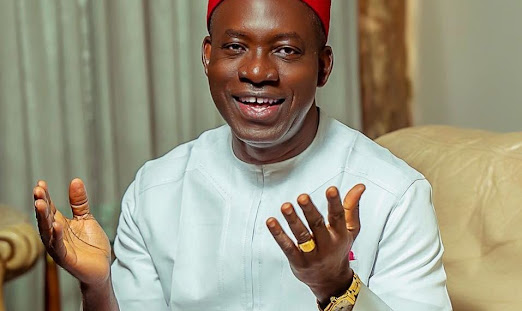We are troubled by the turn of events in Nigeria, and hereby call on President Goodluck Jonathan and the rest of the country’s political leadership to take immediate steps to tackle the state of lawlessness in certain parts of the nation and address the trepidation and rage that has reached dangerous levels within the Nigerian populace.
Chinua Achebe
Nigeria is witnessing a new escalation of sectarian violence, culminating in explosions that have killed or seriously wounded scores of people at churches and other centers of worship and local businesses.
As a people who lost two million citizens in a civil war, Nigerians must bring an urgent sense of history to the gloomy events. The country’s leadership should not view the incessant attacks as mere temporary misfortune with which the citizenry must learn to live; they are precursors to events that could destabilize the entire country.
We applaud President Jonathan’s declaration of a state of emergency in certain local government areas in four states. However, we have seen little indication that the country’s security and law enforcement agents are up to the task of protecting the lives and property of citizens in all parts of Nigeria.
 Okey Ndibe
Okey Ndibe
Clearly, the sophistication and deadly impact of the terrorist attacks suggest an agenda to create widespread fear and, possibly, to foment anarchy or war. President Jonathan has no greater duty than to ensure that Nigerians are safe wherever they live or visit within the country. He should demonstrate his recognition of that solemn duty, in our view, by doing the following:
(a) Outline both short and long term plans to comprehensively address the scourge of terror,
(b) Appoint competent and committed officials to head the various security agencies, and
(c) Serve as an agent to heal the many divisions plaguing Nigeria, and persuade all well-meaning people to enlist in the fight against festering violence.
 Tess Onwueme
Tess Onwueme
President Jonathan’s decision to remove fuel subsidies in the country at this time was ill-advised. Coming at the advent of the New Year, and barely a week after the gruesome Christmas Day attacks on worshippers, the policy has forced many Nigerian citizens to perceive his leadership as one that is both insensitive and possibly contemptuous of the mood of its people.
We stand with the Nigerian people who are protesting the removal of oil subsidy which has placed an unbearable economic weight on their lives. This action has clearly imposed an untenable and unfair burden on those segments of Nigerians who are already impoverished - subsisting on less than $2 a day. We call on President Jonathan to immediately change course. By reverting to the old prices of petroleum products, President Jonathan can work to diffuse tension in the country and exemplify the true servant leader who not only serves but also listens to his people. To insist on having his way, and to deploy state security and legal apparati to crush growing popular uprisings is to stamp on a highly valued tenet of democracy – the right to peaceful assembly – and to inadvertently promote greater violence in the country.
 Isidore Okpewho
Isidore Okpewho
President Jonathan’s administration has made a persuasive case that a few highly connected Nigerians have corruptly profited from fuel subsidy. The government should swiftly bring to justice those corrupt profiteers as well as the bureaucrats who aid and abet their unconscionable parasitic activities and economic sabotage.
We acknowledge President Jonathan’s recent announcement of 25% cut in the basic salaries of political office holders.
But we believe that the move merely scratches the indefensible bloated salaries and allowances paid to Nigerian political officials. The president should also champion significant cuts in the huge cost of running the various tiers of government and the luxuries that have become the signature of those who ought to protect the commonwealth, serve the people, and not exploit them.
Besides, the culture of corruption and impunity in official quarters constitutes a grave threat to national security and to the country’s effort to establish a democratic culture and meaningful economic development.
Nigeria needs a return to relative calm to enable its people, and the Jonathan administration in particular, to focus on the task of combating the incubus of corruption, poverty and home-grown terrorism.
Signed by:
Chinua Achebe, Okey Ndibe, Nduka Otiono, Helon Habila, Akin Adesokan, Pius Adesanmi, Tess Onwueme, Obiora Udechukwu, Yinka Tella, Richard Ali, Chiji Akoma, Paul Ugor, Tolu Ogunlesi, Samantha Iwowo, Idowu Ohioze, Offiong Bassey, Chido Onumah, Bunmi Aborisade, Omolade Adunbi, Mahmud Obeamata, Mahmud Aminu, Nasr Kura, Gimba Kakanda, Obioma Nnaemeka, Sonala Olumhense, Ikhide Ikheola, Isidore Okpewho, E.C. Osondu, Ogaga Ifowodo, Mike Nwosu, Herbert Ekwe Ekwe, Chimalum Nwankwo, Uzor Maxim Uzoatu, Ebenezer Obadare, Ahmed Maiwada, Madina Shehu, Hussein Abdu, Auwal Musa Rafsanjani


%20Cover-pix-By-Ugochukwu%20Ejinkeonye.JPG)








